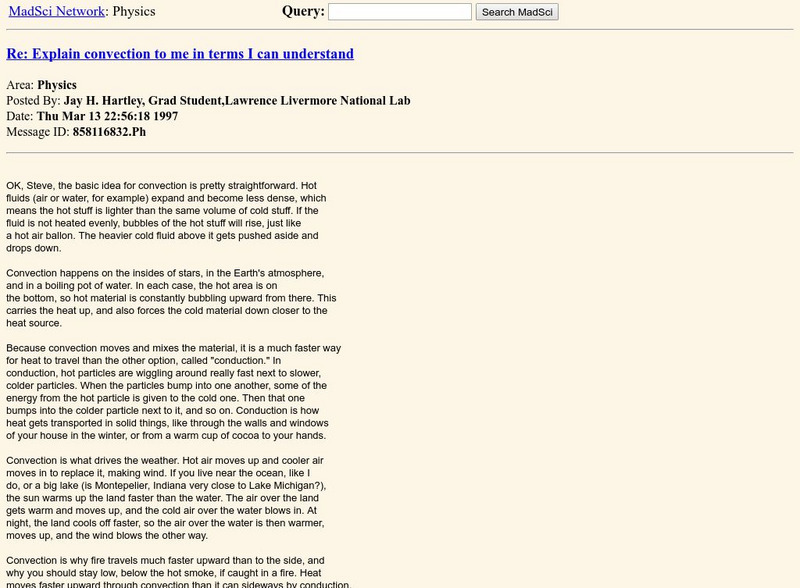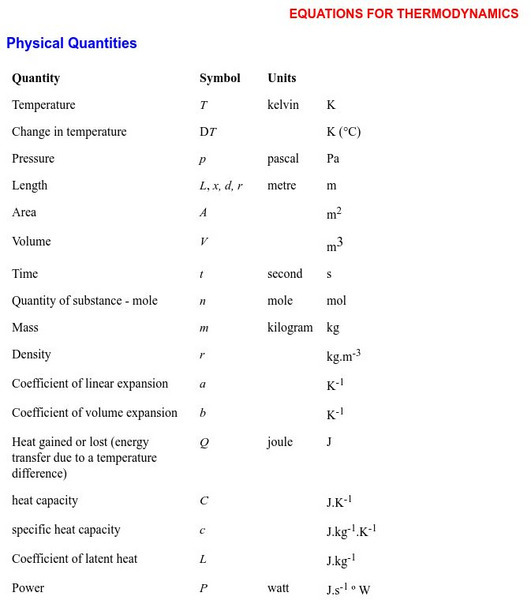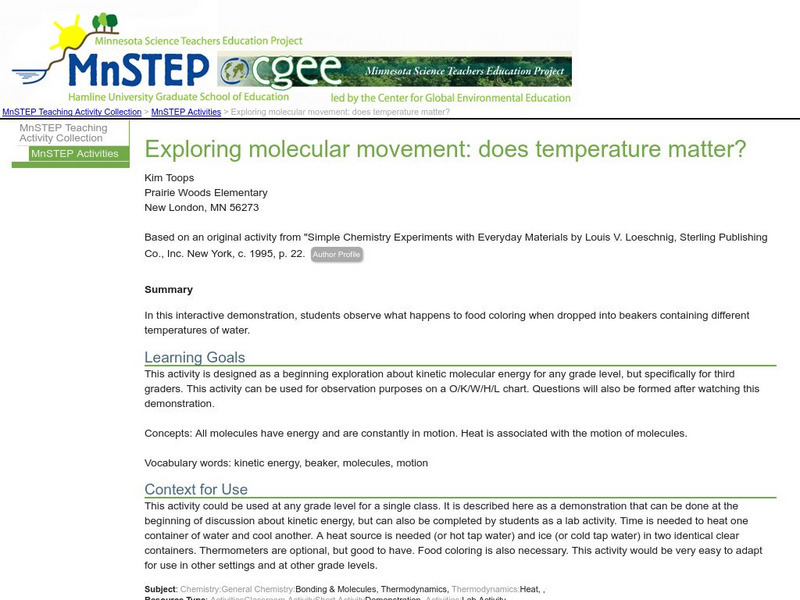Georgia State University
Georgia State University: Hyper Physics: Entropy
This informative site is from Georgia State University. The tendency of nature to move towards a more disordered state in an isolated system, a concept known as entropy, is discussed. This concept is well-depicted in meaningful diagrams.
University of Colorado
University of Colorado: Physics 2000: Temperature and Absolute Zero
Another awesome page from the Physics 2000 site. Entertaining, interactive, educational, understandable. Explains the meaning of temperature and absolute zero. Discusses the temperature scales. Requires Java.
Science Buddies
Science Buddies: Bake Your Ice Cream
This activity will teach you how it is even possible to bake ice cream in a hot oven and have it come out frozen.
Science Education Resource Center at Carleton College
Serc: Exploring Molecular Movement: Does Temperature Matter?
In this interactive demonstration, learners observe what happens to food coloring when dropped into beakers containing different temperatures of water.
TED Talks
Ted: Ted Ed: Two Objects Same Room Two Different Temperatures?
How can two objects have the same temperature but feel like they have different temperatures? Veritasium explores this phenomenon. [4:00]
Georgia State University
Georgia State University: Hyper Physics: Saturated Vapor Pressure
The meaning of vapor pressure is introduced. The distinction between evaporation and boiling is discussed and explained. The reason that liquids undergo vaporization is explained.
American Chemical Society
Middle School Chemistry: Molecules in Motion
Slide the temperature gauge and see what happens to the movement of the molecules.
Oak Ridge National Laboratory
Oak Ridge National Laboratory: Insulation Fact Sheet
Several well-written pages using easy-to-understand language. Explains about every detail concerning insulation and its installation or replacement. Discusses R values, heat loss, insulation types, etc.
University of Sydney (Australia)
Entropy and the Second Law of Thermodynamics [Pdf]
A set of printable pdf pages from the University of Sydney's "Thermal Physics Module" site. Entropy is defined and explained conceptually. The mathematical treatment of entropy is introduced. The second law of thermodynamics and its...
Climate Literacy
Clean: What Happens to Ice in Water?
Students investigate the properties of water in the ice and liquid phase as it relates to convection in the ocean and density driven circulation, and ultimately the climate.
Woods Hole Oceanographic Institution
Woods Hole Oceanography Institute: Deep Ocean Circulation
What causes the circulation of ocean waters that are too deep to be affected by wind? Find out how salinity and temperature drive the deep sea currents. This resource has several videos and an online quiz.
Curated OER
Fund. Of Phys. Geography/energy, Temperature, and Heat
A page describing (in part) the distinction between energy, temperature and heat. Includes graphic illustrating the quantity of energy needed to transform water between its various states. Methods of thermal energy transfer (convection,...
University of Sydney (Australia)
Thermal Physics Module: Ideal Gases [Pdf]
A molecular model of a gas is introduced and explained. Assumptions behind the ideal gas law are presented. The ideal gas law is stated. Charles' law and Boyle's law are derived from the ideal gas law.
Other
Solar Cooking Archive
This website is brought to you by Solar Cookers International. You can view the site in English, German, Spanish, French, Italian and Portuguese. Check out how to build different types of solar cookers.
Science is Fun
Science Is Fun: The Fireproof Balloon
In this experiment, two balloons are each placed over a lighted match, but the one that has had water placed inside it does not burst. Includes an explanation of why that is so.
Other
L in C Online: Three Little Pigs
An energy transfer project for junior high school students is presented and described. Takes the form of a teacher lesson plan. Students may be able to extract some ideas for a project or experiment.
Educaplus (Jesús Peñas Cano)
Educaplus: Calorimetria [In Spanish]
Practice with the calorimeter and calculate the specific heat of different substances.
Chemistry Collective
Chem Collective: Coffee Problem
Use the virtual lab to determine how much milk to add to hot coffee to reach the desired temperature
Georgia Department of Education
Ga Virtual Learning: Chemistry: Thermochemistry
Through informational text, interactive practice problems, online labs, and virtual simulations, students are introduced to the concepts of thermochemistry.
MadSci Network
The Mad Scientist Network: Physics
A page from the question and answer section of this useful site. The page responds to the user question: "Explain convection to me in terms I can understand." An excellent discussion of the method of convection.
Exploratorium
Exploratorium: Exhibit Cross Reference: Convection Currents
A description of a museum exhibit that illustrates convection and convection currents. Great idea stimulus for a student project or lab investigation.
Lawrence Berkeley National Laboratory
Berkeley Lab: University of California: Electromagnetic Radiation
This page defines electromagnetic radiation. Included are links to more information.
University of Sydney (Australia)
Equations for Thermodynamics
An exhaustive list of equations and formulas which are commonly used in thermal physics (including equations for triple point). Equations are organized according to category. Meaning of the symbols is clearly stated.
Science Education Resource Center at Carleton College
Serc: Exploring Molecular Movement: Does Temperature Matter?
In this interactive demonstration, students observe what happens to food coloring when dropped into beakers containing different temperatures of water.







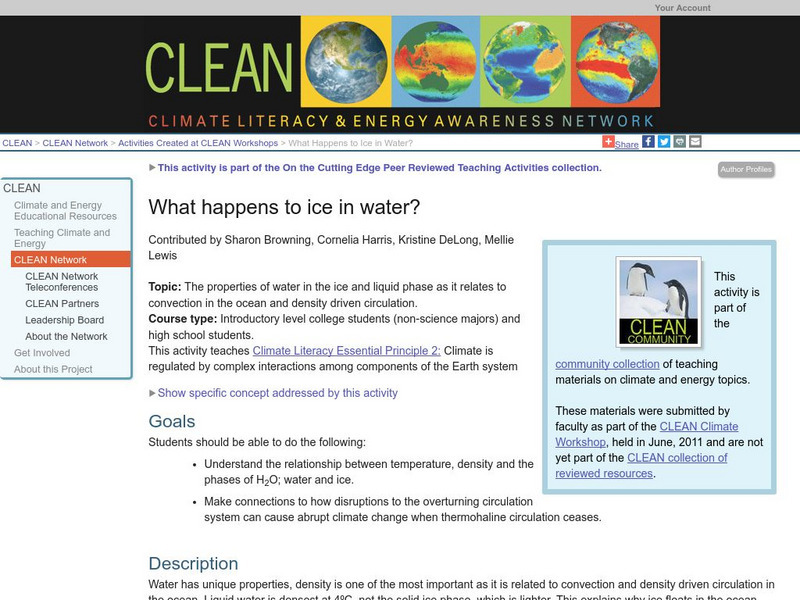


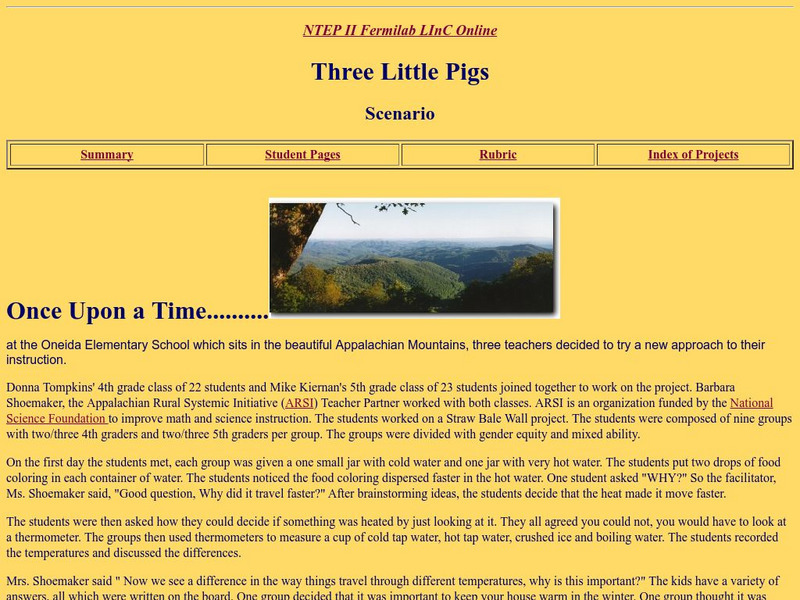
![Educaplus: Calorimetria [In Spanish] Activity Educaplus: Calorimetria [In Spanish] Activity](https://content.lessonplanet.com/knovation/original/366822-e58f9ef2399b6d28695cbc1d7c604def.jpg?1661772970)


